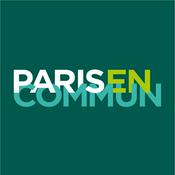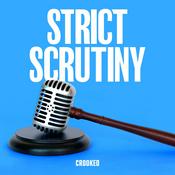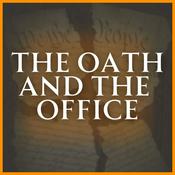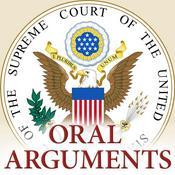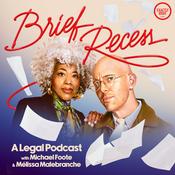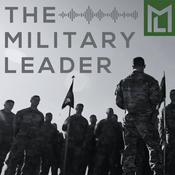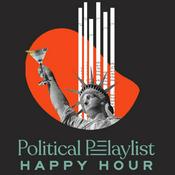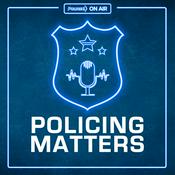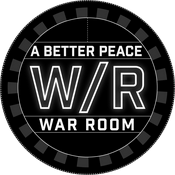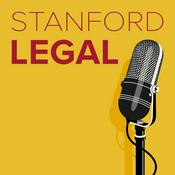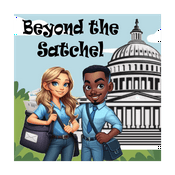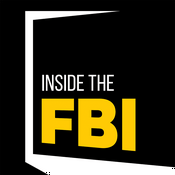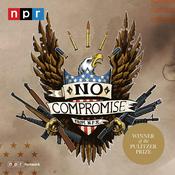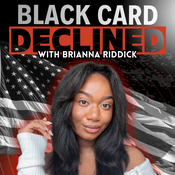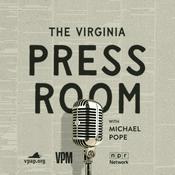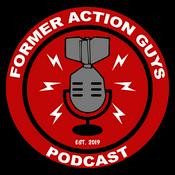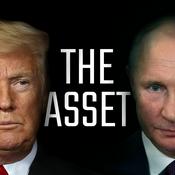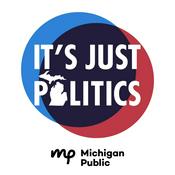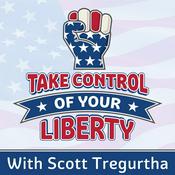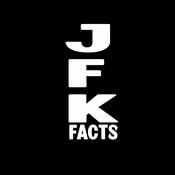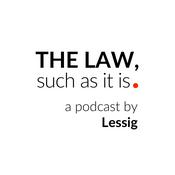182 episodes
- Can the United States arrest a foreign head of state by sending FBI agents—and military troops—into another country? On the latest episode of Stanford Legal, Professor Pam Karlan sits down with international law expert and Stanford Law lecturer Allen Weiner to discuss the recent extraction of Venezuela’s Nicolás Maduro. Their wide-ranging conversation focuses on the uneasy space where U.S. law collides with the constraints of international law.
Weiner, a former U.S. State Department legal adviser and now director of several international law–and humanitarian-focused programs at Stanford Law School, explains how domestic legal theories advanced to justify Operation Absolute Resolve in contrast with the UN Charter’s ban on the use of force. He situates the episode in a longer arc of U.S. efforts to reconcile military action with international legal limits, including earlier debates over actions in Kosovo and Libya.
The legal questions are substantial, but the stakes ultimately turn on precedent and norms: how U.S. actions are understood by other states, what they signal to rivals such as Russia and China, and whether the international system begins to resemble the logic captured in Thucydides’ Peloponnesian Wars—that “the strong do what they can and the weak suffer what they must.”
Links:
Allen Weiner >>> Stanford Law page
Connect:
Episode Transcripts >>> Stanford Legal Podcast Website
Stanford Legal Podcast >>> LinkedIn Page
Rich Ford >>> Twitter/X
Pam Karlan >>> Stanford Law School Page
Diego Zambrano >>> Stanford Law School Page
Stanford Law School >>> Twitter/X
Stanford Lawyer Magazine >>> Twitter/X
(00:00) Is a threat a use of force?
(00:16:18) Pressure, coercion, and the non-intervention line
(00:17:02) Venezuela policy and the specter of escalation
(00:28:24) Law, power, and the South China Sea
Hosted by Simplecast, an AdsWizz company. See pcm.adswizz.com for information about our collection and use of personal data for advertising. - What are the legal implications of the unprecedented mass pardoning of the January 6th rioters? What does it say about American rule of law?
President Biden’s DOJ prosecuted nearly 1,600 of the January 6, 2021, rioters—many for acts of shocking violence against police and government offices. On January 20, newly sworn-in President Trump, in one of his first official acts, issued a sweeping grant of clemency to all of the rioters charged in connection with the attack on the Capitol attack. He pardoned most defendants and commuted the sentences of 14 members of the Proud Boys and Oath Keepers militia, most of whom had been convicted of seditious conspiracy. The response from some of these violent rioters since the pardons has been alarming.
“The people who did this, they need to feel the heat. We need to find and put them behind bars for what they did,” said Enrique Tarrio, the former national Proud Boys leader, sentenced to a 22-year sentence on seditious conspiracy charges, on Alex Jones' podcast soon after his pardon.
Our guests today are Stanford Law Professor Shirin Sinnar and former DOJ prosecutor Brendan Ballou.
Sinnar’s scholarship, including a recent study of hate groups, focuses on the legal treatment of political violence, the procedural dimensions of civil rights litigation, and the role of institutions in protecting individual rights and democratic values in the national security context
Ballou was a lawyer at the Department of Justice for five years. He resigned on January 23 soon after President Trump's pardons. In a New York Times opinion essay, he wrote: “For while some convicted rioters seem genuinely remorseful, and others appear simply ready to put politics behind them, many others are emboldened by the termination of what they see as unjust prosecutions. Freed by the president, they have never been more dangerous.” He graduated from Stanford Law in 2016.
Links:
Shirin Sinnar >>> Stanford Law page
New York Times piece by Brendan Ballou >>> I Prosecuted the Capitol Rioters. They Have Never Been More Dangerous.
Connect:
Episode Transcripts >>> Stanford Legal Podcast Website
Stanford Legal Podcast >>> LinkedIn Page
Rich Ford >>> Twitter/X
Pam Karlan >>> Stanford Law School Page
Stanford Law School >>> Twitter/X
Stanford Lawyer Magazine >>> Twitter/X
(00:00:00) The January 6th Prosecutions and the Pardon Power
(00:06:26) Rewriting History and the Threat of Political Violence
(00:11:56) The Future of Political Violence in the U.S.
(17:24) Addressing Militia Violence and Legal Gaps
(21:37) State-Level Prosecutions and Risks of Expanding Criminal Laws
(25:27) Pardons, Political Violence, and Historical Parallels
Hosted by Simplecast, an AdsWizz company. See pcm.adswizz.com for information about our collection and use of personal data for advertising. - A coalition of privacy defenders led by Lex Lumina and the Electronic Frontier Foundation filed a lawsuit on February 11 asking a federal court to stop the U.S. Office of Personnel Management (OPM) from disclosing millions of Americans’ private, sensitive information to Elon Musk and his “Department of Government Efficiency” (DOGE). As the federal government is the nation’s largest employer, the records held by OPM represent one of the largest collections of sensitive personal data in the country.
Is this a big deal? Should we care? Joining Pam today is Stanford Law Professor Mark Lemley, an expert in intellectual property, patent law, trademark law, antitrust, the law of robotics and AI, video game law, and remedies. Lemley is of counsel with the law firm Lex Lumina and closely involved in the DOGE case. In this episode, Lemley overviews urgent privacy concerns that led to this lawsuit, laws such as the Privacy Act, and legal next steps for this case.
The conversation shifts to the current political landscape, highlighting the unprecedented influence of Silicon Valley, particularly under the Musk administration. Lemley contrasts the agile, authoritative management style of Silicon Valley billionaires with the traditionally slow-moving federal bureaucracy, raising concerns about legality and procedural adherence. The conversation also touches on the demise of the Chevron doctrine and the possible rise of an imperial presidency, drawing parallels between the Supreme Court's and the executive branch's power grabs—and how Lemley's 2022 paper, "The Imperial Supreme Court," predicted the Court's trend towards consolidating power. This episode offers a compelling examination of how technological and corporate ideologies are influencing American law.
Links:
Mark Lemley >>> Stanford Law page
“The Imperial Supreme Court” >>> Stanford Law publication page
Connect:
Episode Transcripts >>> Stanford Legal Podcast Website
Stanford Legal Podcast >>> LinkedIn Page
Rich Ford >>> Twitter/X
Pam Karlan >>> Stanford Law School Page
Stanford Law School >>> Twitter/X
Stanford Lawyer Magazine >>> Twitter/X
(00:00:00) The Rise of Executive Power
(00:07:22) Concerns About Data Handling and Privacy
(00:08:41) The Impact of Silicon Valley's Ethos on Government
(00:14:01) The Musk Administration's Approach
(00:18:01) The Role of the Supreme Court
(00:24:43) Silicon Valley's Influence on Washington
Hosted by Simplecast, an AdsWizz company. See pcm.adswizz.com for information about our collection and use of personal data for advertising. - When a single federal judge can freeze a president’s policy nationwide, it raises big questions about checks and balances and democratic accountability. That’s one reason nationwide injunctions have become central to some of today’s most consequential legal battles—and why the Supreme Court’s recent decision in Trump v. CASA matters.
At a live recording, Stanford Legal host Diego Zambrano sat down with Professor Mila Sohoni, one of the country’s leading scholars on federal courts and administrative law, for a conversation that moved from President Trump’s day-one birthright-citizenship order to the Court’s ruling in CASA, including how lower courts are now navigating the decision’s new, but murky, constraints on nationwide injunctions.
Sohoni breaks the protection these injunctions can offer when sweeping executive actions threaten millions, the risks of empowering individual judges to halt national policy, and the incentives for strategic forum shopping in a polarized era. She also explains how CASA reins in—but doesn’t eliminate—the nationwide injunction, leaving room for broad relief through class actions, universal vacatur, and “complete relief” findings.
The discussion sheds light on how the legal landscape is shifting after CASA, and why nationwide injunctions continue to shape major clashes between the courts and the executive branch.
Links:
Mila Sohoni >>> Stanford Law page
“The Puzzle of Procedural Originalism” >>> Stanford Law page
Connect:
Episode Transcripts >>> Stanford Legal Podcast Website
Stanford Legal Podcast >>> LinkedIn Page
Rich Ford >>> Twitter/X
Pam Karlan >>> Stanford Law School Page
Diego Zambrano >>> Stanford Law School Page
Stanford Law School >>> Twitter/X
Stanford Lawyer Magazine >>> Twitter/X
(00:00:00) The Scope of Nationwide Injunctions
(00:12:01) Epistemic and Democratic Arguments Against Nationwide Injunctions
(00:28:54) The CASA Decision
(00:29:37) Legal Basis and Impact of Executive Orders
(00:38:20) Conclusion and Audience Questions
Hosted by Simplecast, an AdsWizz company. See pcm.adswizz.com for information about our collection and use of personal data for advertising. - Over a 35-year career at the Department of Justice, Jonathan Wroblewski, JD ’86, watched the country’s stance on criminal sentencing harden, soften, recalibrate, and shift again. One of his early cases at the DOJ, which involved a cross-burning in rural Georgia, sparked a fascination with sentencing policy that shaped the rest of his career. Today, he is one of the country’s leading experts on sentencing law and policy.
In this episode of Stanford Legal, host Professor Pamela Karlan talks with Wroblewski about crime and punishment, including the evolution of modern sentencing policies. Wroblewski, who has been serving as a visiting instructor at Stanford Law teaching courses on sentencing and AI in criminal justice, also offers a look inside his long career at the DOJ, where Karlan also served two separate stints as a political appointee.
The conversation moves between how crime waves shape public attitudes, why some sentencing reforms take hold while others stall, and what happens inside the DOJ when long-standing norms begin to erode. Wroblewski’s stories, drawn from decades of work across administrations, bring those shifts into sharper focus.
Links:
Jonathan Wroblewski >>> Stanford Law page
Connect:
Episode Transcripts >>> Stanford Legal Podcast Website
Stanford Legal Podcast >>> LinkedIn Page
Rich Ford >>> Twitter/X
Pam Karlan >>> Stanford Law School Page
Diego Zambrano >>> Stanford Law School Page
Stanford Law School >>> Twitter/X
Stanford Lawyer Magazine >>> Twitter/X
(00:00) Intro to Jonathan Wroblewski’s Career
(05:01) Evolution of Sentencing Policies
(15:01) Shifts in Sentencing Philosophies
(25:01) Public Perception and Crime Rates
(35:01) Future Perspectives for Fair and Effective Legal Practices
Hosted by Simplecast, an AdsWizz company. See pcm.adswizz.com for information about our collection and use of personal data for advertising.
More Government podcasts
Trending Government podcasts
About Stanford Legal
Law touches most aspects of life. Here to help make sense of it is the Stanford Legal podcast, where we look at the cases, questions, conflicts, and legal stories that
affect us all every day.
Stanford Legal launched in 2017 as a radio show on Sirius XM. We’re now a standalone podcast and we’re back after taking some time away, so don’t forget to subscribe or follow this feed. That way you’ll have access to new episodes as soon as they’re available.
We know that the law can be complicated. In past episodes we discussed a broad range of topics from the legal rights of someone in a conservatorship like Britney Spears to the Supreme Court’s abortion decision to how American law firms had to untangle their Russian businesses after the invasion of Ukraine. Past episodes are still available in our back catalog of episodes.
In future shows, we’ll bring on experts to help make sense of things like machine learning and developments in the regulation of artificial intelligence, how the states draw voting maps, and ways that the Supreme Court’s affirmative action ruling will change college admissions.
Our co-hosts know a bit about these topics because it’s their life’s work.
Pam Karlan studies and teaches what is known as the “law of democracy,”—the law that regulates voting, elections, and the political process. She served as a commissioner on the California Fair Political Practices Commission, an assistant counsel and cooperating attorney for the NAACP Legal Defense Fund, and (twice) as a Deputy Assistant Attorney General in the Civil Rights Division of the U.S. Department of Justice. She also co-directs Stanford’s Supreme Court Litigation Clinic, which represents real clients before the highest court in the country, working on important cases including representing Edith Windsor in the landmark marriage equality win and David Riley in a case where the Supreme Court held that the police generally can’t search digital information on a cell phone seized from an individual who has been arrested unless they first get a warrant. She has argued before the Court nine times.
And Rich Ford’s teaching and writing looks at the relationship between law and equality, cities and urban development, popular culture and everyday life. He teaches local government law, employment discrimination, and the often-misunderstood critical race theory. He studied with and advised governments around the world on questions of equality law, lectured at places like the Sorbonne in Paris on the relationship of law and popular culture, served as a commissioner for the San Francisco Housing Commission, and worked with cities on how to manage neighborhood change and volatile real estate markets. He writes about law and popular culture for lawyers, academics, and popular audiences. His latest book is Dress Codes: How the Laws of Fashion Made History, a legal history of the rules and laws that influence what we wear.
The law is personal for all of us—and pivotal. The landmark civil rights laws of the 1960s have made discrimination illegal but the consequences of the Jim Crow laws imposed after the civil war are still with us, reflected in racially segregated schools and neighborhoods and racial imbalances in our prisons and conflict between minority communities and police. Unequal gender roles and stereotypes still keep women from achieving equality in professional status and income. Laws barring gay people from marrying meant that millions lived lives of secrecy and shame. New technologies present new legal questions: should AI decide who gets hired or how long convicted criminals go to prison? What can we do about social media’s influence on our elections? Can Chat GPT get copyright in a novel?
Law matters. We hope you’ll listen to new episodes that will drop on Thursdays every two weeks.
To learn more, go to https://law.stanford.edu/stanford-legal-podcast/.
Podcast websiteListen to Stanford Legal, Blue Dog Radio and many other podcasts from around the world with the radio.net app

Get the free radio.net app
- Stations and podcasts to bookmark
- Stream via Wi-Fi or Bluetooth
- Supports Carplay & Android Auto
- Many other app features
Get the free radio.net app
- Stations and podcasts to bookmark
- Stream via Wi-Fi or Bluetooth
- Supports Carplay & Android Auto
- Many other app features


Stanford Legal
Scan code,
download the app,
start listening.
download the app,
start listening.




